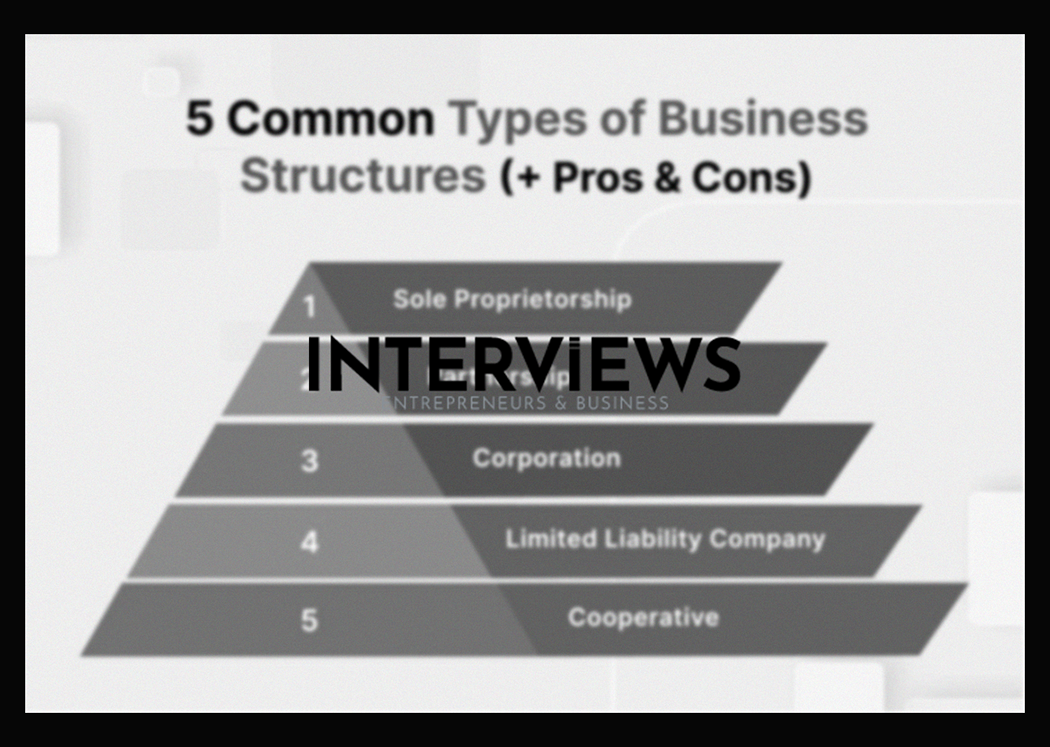Navigating the Business World With… People (Imagine That!)
You want to enter the exhilarating world of business? Great choice! Here’s a secret: business is about people. Shocking! Let’s detail how to structure your business while managing these vital human aspects.
Business Structures: Picking Your Player
Selecting the right business structure is like choosing your character in a game. Each option has perks and potential headaches. Here are some common structures:
Partnership: The Buddy System
A partnership is like a band. “A partnership is the relationship between two or more people to do trade or business,” says the definition. Like any band, everyone contributes – money, skills, even their mom’s garage – and shares profits and losses.
Sole Proprietorship: Flying Solo
Freelancing? If so, you’ve been a sole proprietor without knowing it. “A sole proprietorship is a non-registered, unincorporated business run solely by one individual.” Just you, your idea, and the taxman. You keep all profit but must handle all debt. The business and you? The same entity under the law and to collectors.
Corporation & S Corporation: The Heavy Hitters
These are the big leagues. No deep dive here, but corporations and S corps are typical for larger or complex businesses. They wear suits to meetings, even on Zoom.
Limited Liability Company (LLC): The Best of Both Worlds?
Enter the LLC, the structure that wants to please everyone. “A limited liability company (LLC) is a business structure allowed by state statute.” “LLCs blend partnership and corporate structures.” It’s a blend – part partnership flavor, part corporate protection.
Liability? Let’s talk shields. LLCs act like asset shields. “LLCs shield your personal assets (like your house) from business debts.” If your business fails, creditors can’t touch your prized stamps (unless stamps are your business, and it ends poorly).
Tax Time Shenanigans. The IRS sees LLCs as “pass-through entities.” Profits and losses “pass through” to your personal income. This avoids corporate tax problems.
Why go LLC? “LLC advantages include personal asset protection…” They provide “flexibility in management and potential tax benefits.” It’s like enjoying corporate perks without dressing up for work.
Downsides? “One downside of an LLC is taxes on earnings.” Yes, you pay taxes. Uncle Sam always takes a cut. “As an LLC member, you must pay taxes…” it’s the deal.
LLC vs. Partnership: The Cage Match
Torn between an LLC and a partnership? Let’s break down key differences:
- Liability: LLCs provide liability protection. “LLCs offer liability protection to their owners, while partnerships do not.” Partnerships are like liabilities waiting to happen.
- Owner Titles: LLC owners are “members,” partnership owners are “partners.” Titles matter for legal reasons.
- Taxation: LLCs can be taxed as partnerships or corporations. Partnerships? “Partnerships are always taxed as a partnership.” Simple yet less flexible.
- Formation: LLCs need paperwork. “LLCs are formed by filing Articles of Organization…” Partnerships? Just a handshake (although a written agreement helps avoid disputes).
LLC vs. S Corp: Another Corner, Another Contender
LLC or S Corp? Choosing between them is like selecting coffee types. Both energize but have differences:
- Taxation, Round 2: “One of the main differences between an S corp and an LLC is self-employment taxes…” LLCs face self-employment taxes unless opting for corporate taxation. Check with a tax pro for clarity.
- Flexibility Factor: “The LLC’s primary advantage over an S-Corporation is flexibility…” LLCs adapt easily, like skilled yoga practitioners.
- Ownership Quirks: “S corporation stock is freely transferable…” S Corps have IRS rules for ownership; LLCs allow broader freedom unless restrictions apply.
When to LLC? “LLCs fit medium- or higher-risk businesses, owners wanting to protect significant personal assets…” If you juggle chainsaws on a unicycle, go for an LLC. Protecting your house usually makes sense.
When to S Corp? “If you want to minimize taxes, an S corp could be better due to pass-through benefits…” Tax minimization remains popular. Get expert advice—tax codes confuse many.
Friends, Business, and Potential Drama
Starting a business with friends? It’s fun! “Starting with a close friend can be risky yet fulfilling.” Risky like skydiving but with more spreadsheets.
Home-Based Friend Ventures? “Here are ten ideas for you and your friends: Virtual assistant services. Handmade jewelry. Customized meal prep. Online tutoring. Graphic design services.” Plus, pajama pants count as work attire. Bonus!
Legal Best Practices. “Registering a separate legal entity for your business, usually an LLC or corporation, is wise…” This can preserve friendships and avoid Thanksgiving drama over business disputes.
Show Me the Money: Financial Realities
Let’s talk specifics – money and startup funds:
Startup Cash: How Low Can You Go?
- $3,000 or Less? “Many entrepreneurs started with $3,000 or less.” You don’t need much to begin.
- $10,000? “$10,000 is enough for a small-scale or online business.” More budget room.
- $500? “With $500, you can explore low-cost ideas like freelance writing…” Bootstrap experts can start small.
Cheapest Business Avenues: Lean and Mean
Want to start with minimal investment? Service-based ventures are key:
- Service Businesses: Examples are “Freelance Writing/Editing,” “Tutoring,” “Virtual Assistant,” or “Consulting.” Skills + low startup costs = potential.
- Online Businesses: Consider “E-commerce (Dropshipping),” “Etsy Store.” The internet is your market while relaxing at home.
Income, Outgo, and Uncle Sam
Let’s review money flow and taxes:
- Average Small Business Owner Pay (California): “As of Mar 2, 2025, average pay for owners is $126,297 a year.” Dream big in California.
- Tax Filing Threshold: “File if you earn $400 or more in net earnings from your business.” $400 attracts IRS’s eye.
- Federal Income Tax Brackets: Taxes are inevitable like death and awkward photos.
- LLC Annual Fee (California): “All LLCs must file Form 3522 and pay the $800 Annual Franchise Tax…” California loves its annual fees. Remember this $800 charge!
- Avoiding Double
- Tax (LLC): “An LLC avoids double taxation by electing to be taxed as a pass-through entity.” Pass-through means avoiding extra taxes in a legitimate way.
Business Valuation: What’s It Worth?
What is your business worth? The “Revenue Multiple Method” can help. “A venture that earns $1 million in revenue could have a multiple of 2 or 3, leading to a $2 million or $3 million valuation.” So, revenue x a magic number = business value. Consult experts for accurate magic.
Profitability Hotspots: Where’s the Profit?
Searching for profitable sectors? “Most Profitable Businesses: Technology services, software development, real estate, ecommerce, consulting, and digital marketing.” Tech, property, online retail, advice-giving, ads. The top players in profit.
Relationships: Focus on People
Business is a team effort, even for a “sole” proprietor. Let’s identify key roles:
Business Partner: More Than a Colleague
“A business partner is an entity with which another entity has an alliance.” It’s a formal term for business pals. Synonyms? “co-founder associate coworker peer buddy co-worker.” Not “henchman” unless you’re a villain.
Clients: Essential and Sometimes a Headache
“Referring to them as “clients” creates a professional mindset.” Customers matter, but “clients” may pay invoices faster. “Clients drive revenue…” Without clients, there is no business.
Employees (Especially Friends): Be Careful
Hiring friends can be tricky. “Hiring friends leads to nepotism or cronyism…” It means favoring friends in hiring or promotions. This could create drama. Hire for skills, not just friendship.
Liability: Who Bears the Risk?
Liability – the issue no one thinks about until it’s too late. Let’s break it down:
Unlimited Personal Liability: Oh No! That’s You
“Unlimited personal liability means owners are fully responsible for all company debts…” Essentially, if the business fails, your assets are at risk. “Sole proprietorships and general partnerships often have unlimited liability.” Fly solo? Buckle up; your finances are on the line.
Limited Liability: Your Safety Net
“LLCs protect your assets (like homes and savings) from business debts.” This is vital. “An LLC lets you enjoy benefits of both corporation and partnership structures,” including crucial liability protection. Limited liability acts as your safeguard for personal assets.
Business Jargon Decoder
Business terms can be confusing. Let’s clarify some phrases:
- B2B (Business-to-Business): “B2B is commerce where products, services or information are exchanged between businesses…” This involves companies selling to each other.
- Touch Point: “A touch point is any contact between you and your customer.” Every interaction matters – email, call, website visit – make them count.
- Proprietor: “The proprietor title works if you’re the sole owner handling multiple company roles…” It means “I’m the boss and the janitor.”
- People Business Partner (PBP): “A PBP acts as a strategic advisor to senior leadership…” Think HR with added impact. They align talent with business goals.
Starting Up: Quick Q&A
Some common questions answered:
- LLC with a Friend? “Registering a legal entity, like an LLC, is wise when starting with friends.” Yes, it preserves friendships.
- Smart to Partner Up? “Partnering in business is wise because more people bring more knowledge.” Two heads are better than one.
Partnership Pitfalls: Be Aware!
Partnerships have downsides. “Five potential disadvantages include unlimited liability, potential conflicts, shared profits, limited capital, and ownership transfer issues.” Here are five red flags:
- Unlimited Liability (Yep!): “In general partnerships, each partner is liable for business debts…” Your assets are at risk.
- Conflict Risks: “Disagreements can happen on decisions or visions for the company…” Think band disputes but with more stakes.
- Shared Profits: “Profits are split, which may mean less for individual partners…” Smaller share, larger pie hopefully.
- Limited Capital: “Partnerships find it harder to raise capital than corporations…” Less access to funds often leads to DIY solutions.
- Ownership Transfer Issues: “Transferring a partner’s interest needs consent from others…” Ending a partnership isn’t as easy as leaving a chat group.
There you have it. Business involves people: complex and messy, but that’s where real work happens. Choose wisely, understand dynamics, and you might create something great without losing friends (or your shirt).





